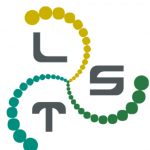ICT LAW
The course in ICT Law aims at investigating the following areas of interest: Private ICT Law; Public ICT Law; Constitutional ICT Law; International ICT Law; Labour ICT Law; Cyber Law; Historicalepistemological, philosophical-theoretical-legal and logical foundations of Legal Informatics.
In the area of the ICT Law we study the following topics:
1. Intellectual Property Rights (IPR) in the Information Society: Software, databases, multimedia, opensource software and open standards, Digital Rights Management (DRM) and technological protection measures, protection of users’ rights, Internet and new media (electronic publishing, linking, framing, P2P), domain names.
2. Electronic signatures and documents: Use of cryptography-based electronic signatures for identification and confidentiality purposes, the legal and evidentiary force of electronic documents, electronic and optical archiving, electronic invoicing.
3. E-commerce: Provision of information-society services, validity of online contracts, consumer protection, e-contract integrity and authenticity, contracts made by software agents, electronic procurement, providers’ liability.
4. Privacy and data protection: Processing of personal data and protection of the privacy rights of natural and legal persons, data processing made through electronic means, security aspects and technological measures. Privacy Enhancing Technologies.
5. Legal aspects involving intelligent agents and multi-agent systems: Legal nature of intelligent agents and multiagent systems, civil and criminal liability of agents in e-commerce, knowledge management and business networks, use of information collected by agents, negotiations and e-contracts made through agents.
6. Dispute resolution and management in virtual environments: Alternative management and resolution of disputes supported by ICT-based interactions, and online dispute resolution.
7. Security and trust in open systems: Violation and rationalisation of trust, impact of security and trust on e-commerce and ICT-based interactions, and ICT solutions to security and trust management.
8. Virtual Organisations: Technical and legal aspects in ICT-enabled collaboration between enterprises for the achievement of specific business goals.
9. Virtual and electronic institutions: Adoption of regulative and constitutive norms and legal concepts (such as obligation, permission, and prohibition) for governing agent interactions in multiagent systems and their encapsulation in infrastructural abstractions.
10. Social network and the Web 2.0: New ethical and legal issues arising from social networks that involve IPR issues regarding multimedia material, privacy issues from user profiling, security issues concerning the usage by third parties of information in social networks, human right issues when the information affect the fundamental rights of the people.
11. Cybercrime: understanding criminal acts committed by the use of computers requires knowledge of the technology as well as the criminal law on topics such as: hacking, spreading of viruses, (virtual) child pornography, and other illegal content on the internet. Procedural criminal law deals with various investigation powers, from placing wiretaps and authorizing people to search data on computer systems and networks and find digital traces. We will discuss the current law as well as future developments, seeking gaps and dilemmas in the legislation. Special attention will be paid to the “Convention on Cybercrime of the Council of Europe”.

 LAST-JD
LAST-JD 










